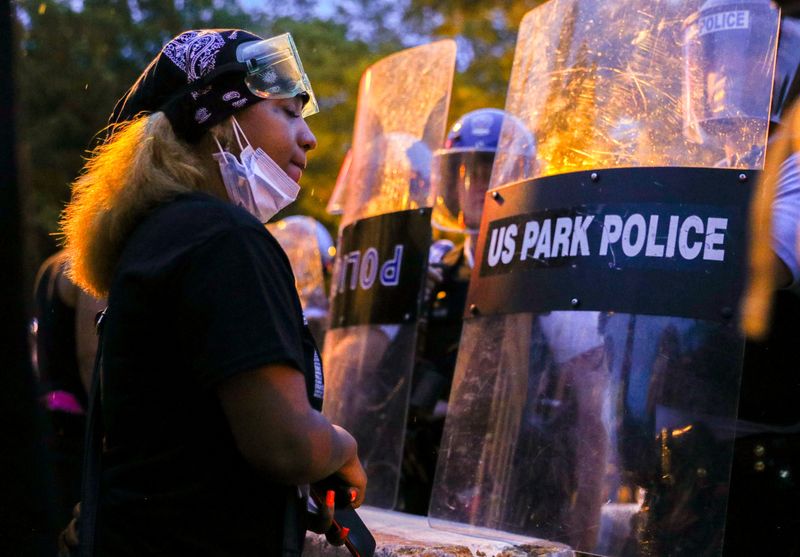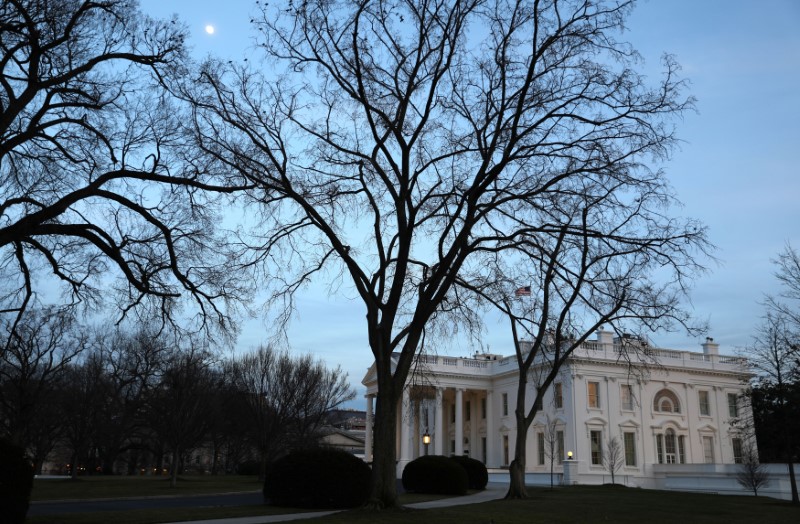By Tom Brenner
WASHINGTON (Reuters) - Protesters tried tearing down a statue of Andrew Jackson, the seventh president of the United States, in a park near the White House on Monday, scrawling "killer scum" on its pedestal and pulling on the monument with ropes before police intervened.
The confrontation unfolded in Lafayette Square, where crowds peacefully protesting the death of George Floyd under the knee of a police officer were forcibly displaced three weeks ago to make way for staged photos of President Trump holding up a bible in front of a nearby church.
The thwarted effort to topple the famed bronze likeness of Jackson astride a rearing horse was the latest bid, in protests fuelled by Floyd's death, to destroy monuments of historical figures considered racist or divisive.
President Donald Trump took to Twitter https://twitter.com/realDonaldTrump/status/1275258921704402945, saying that many people were arrested for the "disgraceful vandalism" in Lafayette Park and also for defacing the exterior of St. John's Church.
"Ten years in prison under the Veteran's Memorial Preservation Act. Beware!" he warned.
Monday's incident began around dusk with scores of protesters, most wearing masks against coronavirus infection, breaking through a 6-foot-tall fence erected in recent days around the statute at the center of the park.
Protesters then climbed onto the monument, fastening ropes and cords around the sculpted heads of both Jackson and his horse and dousing the marble pedestal with yellow paint before the crowd began trying to yank the statute from its base.
Dozens of law enforcement officers, led by U.S. Park Police, stormed into the square, swinging batons and firing chemical agents to scatter protesters. By dark, police had taken control and outnumbered demonstrators in the immediate area.
Jackson, a former U.S. Army general nicknamed "Old Hickory," served two terms in the White House, from 1829 to 1837, espousing a populist political style that has sometimes been compared with that of Trump.

Native American activists have long criticized Jackson, a Democrat, for signing the 1830 Indian Removal Act, which led to thousands of Native Americans being driven from their lands by the U.S. government and forced to march west, in what became known as the "Trail of Tears." Many perished before arriving.
